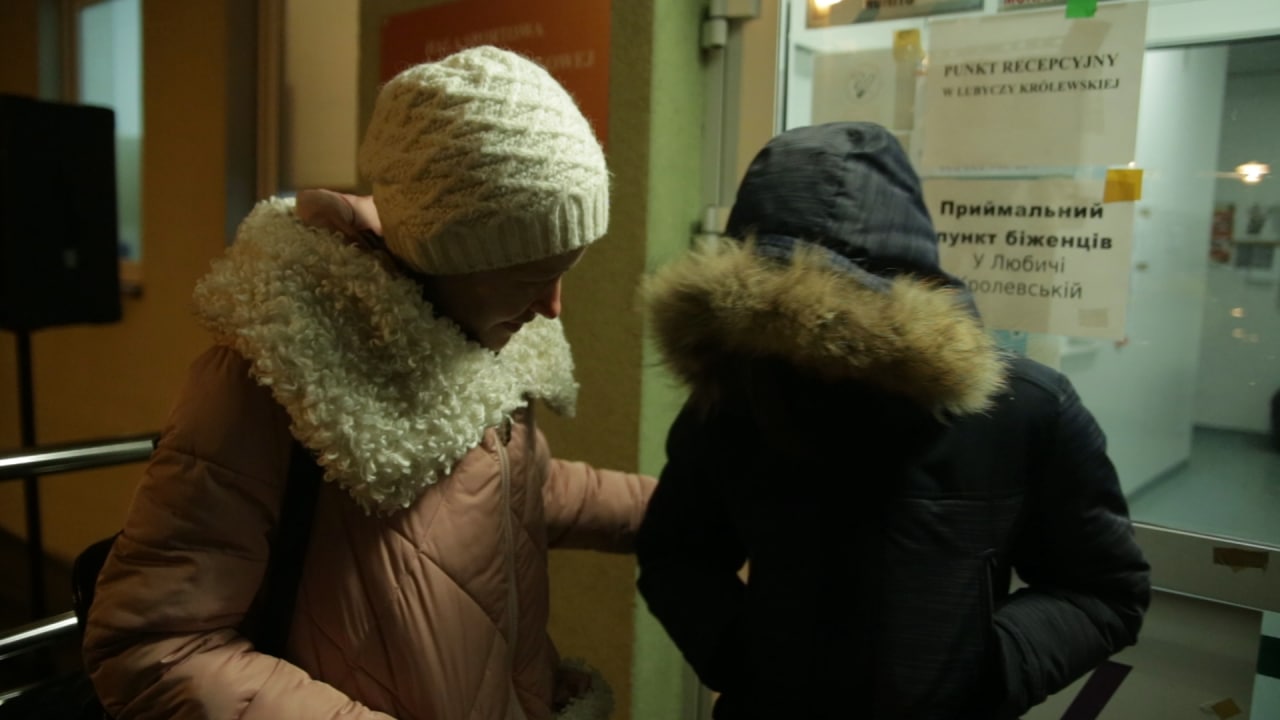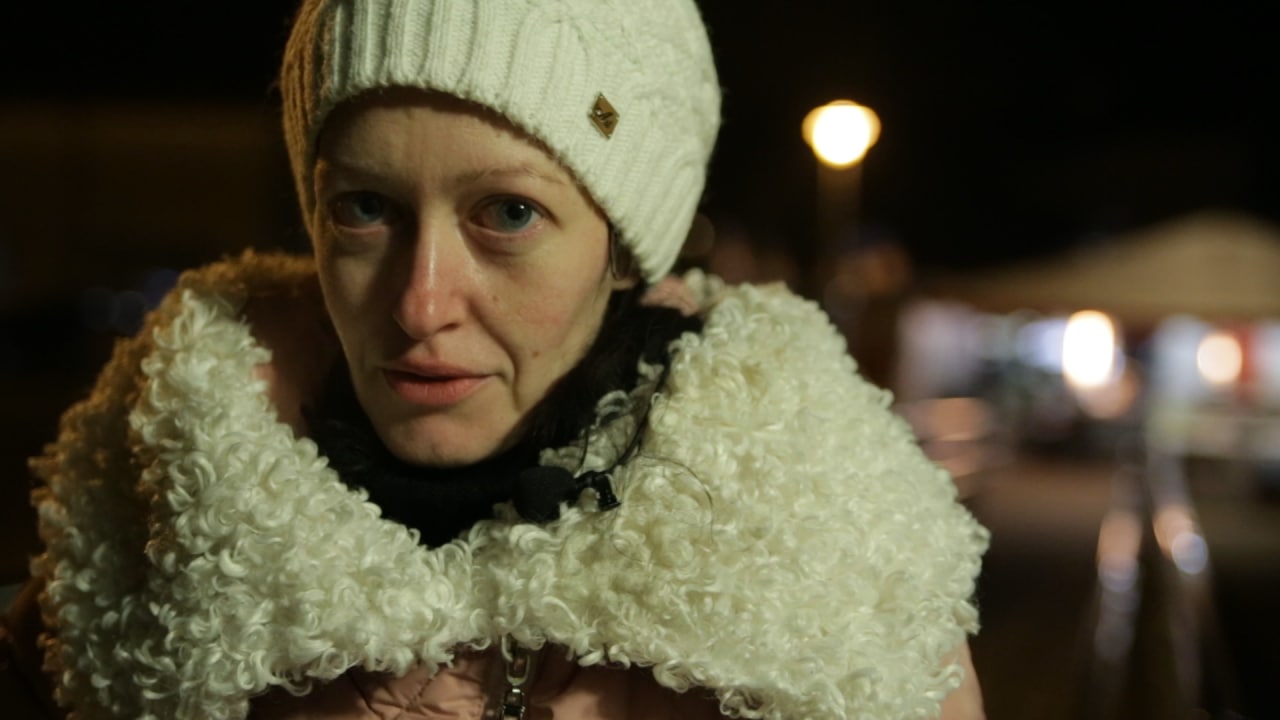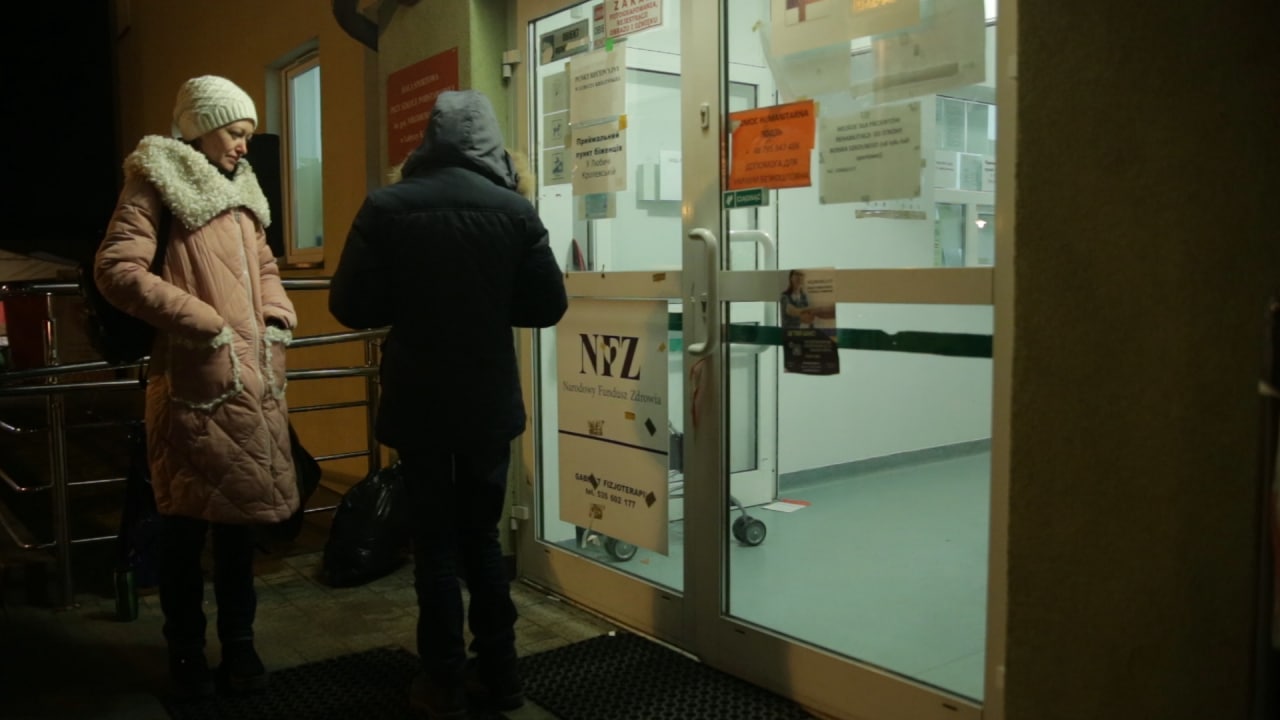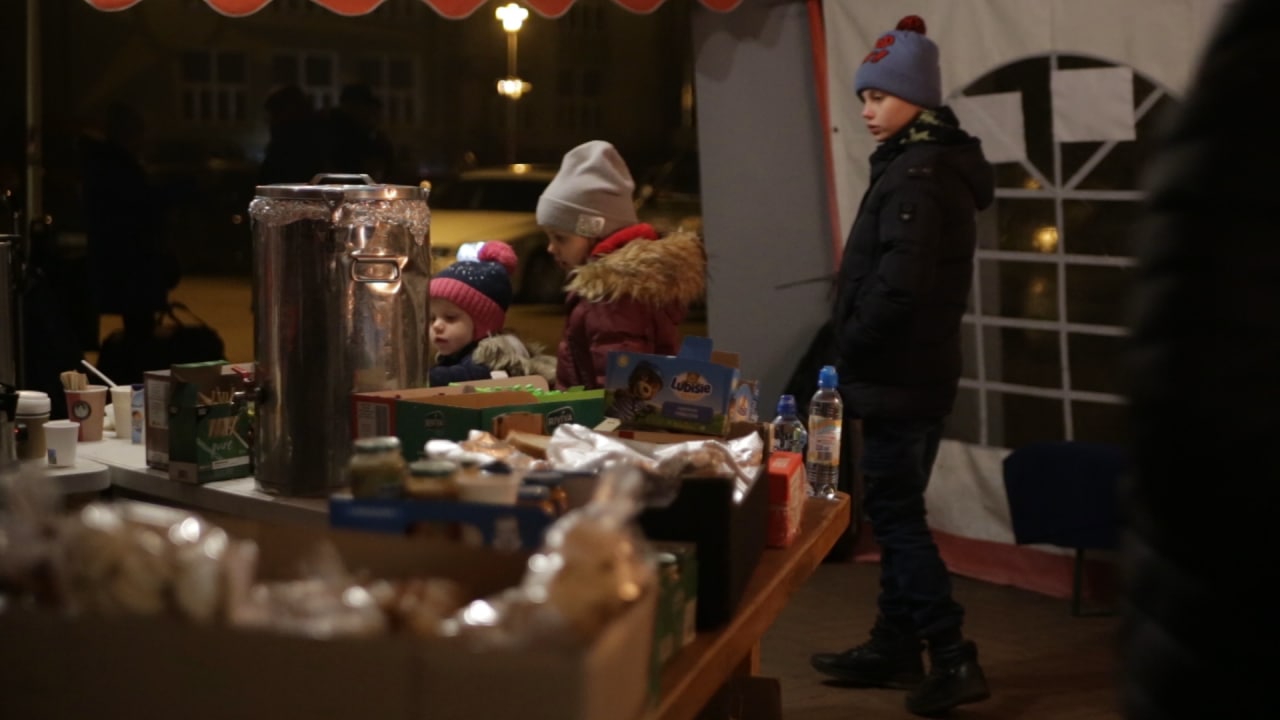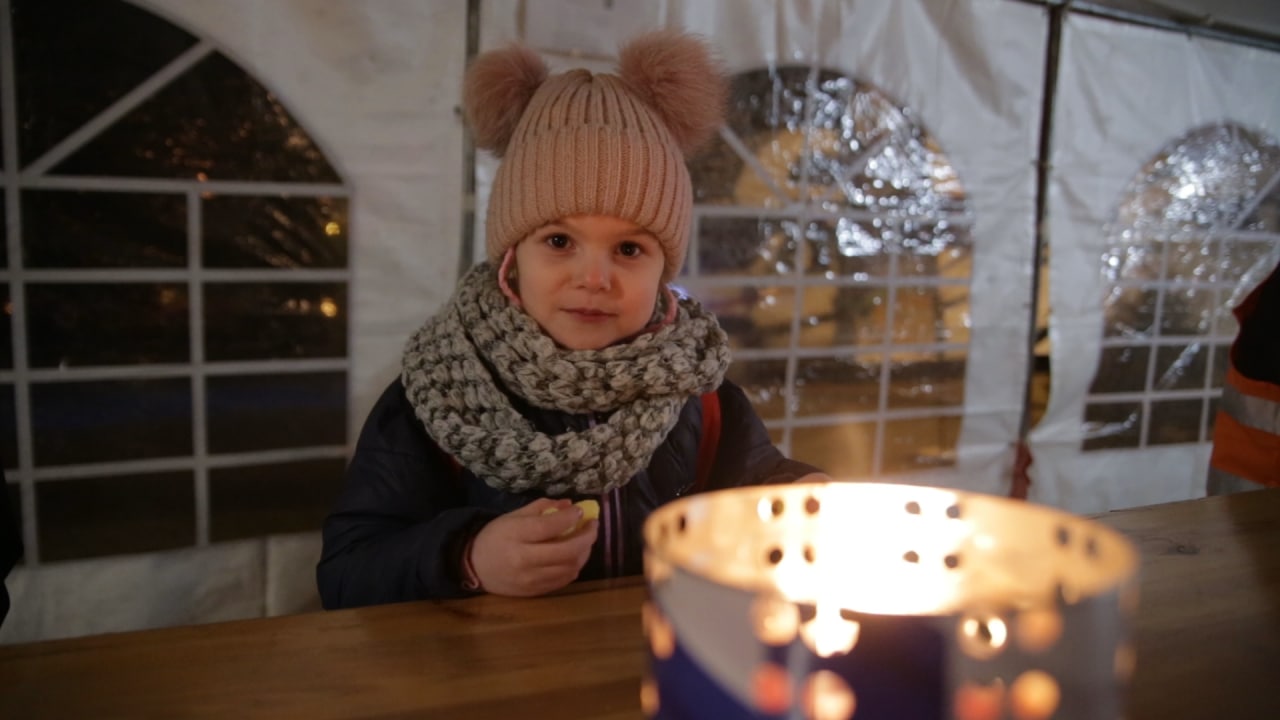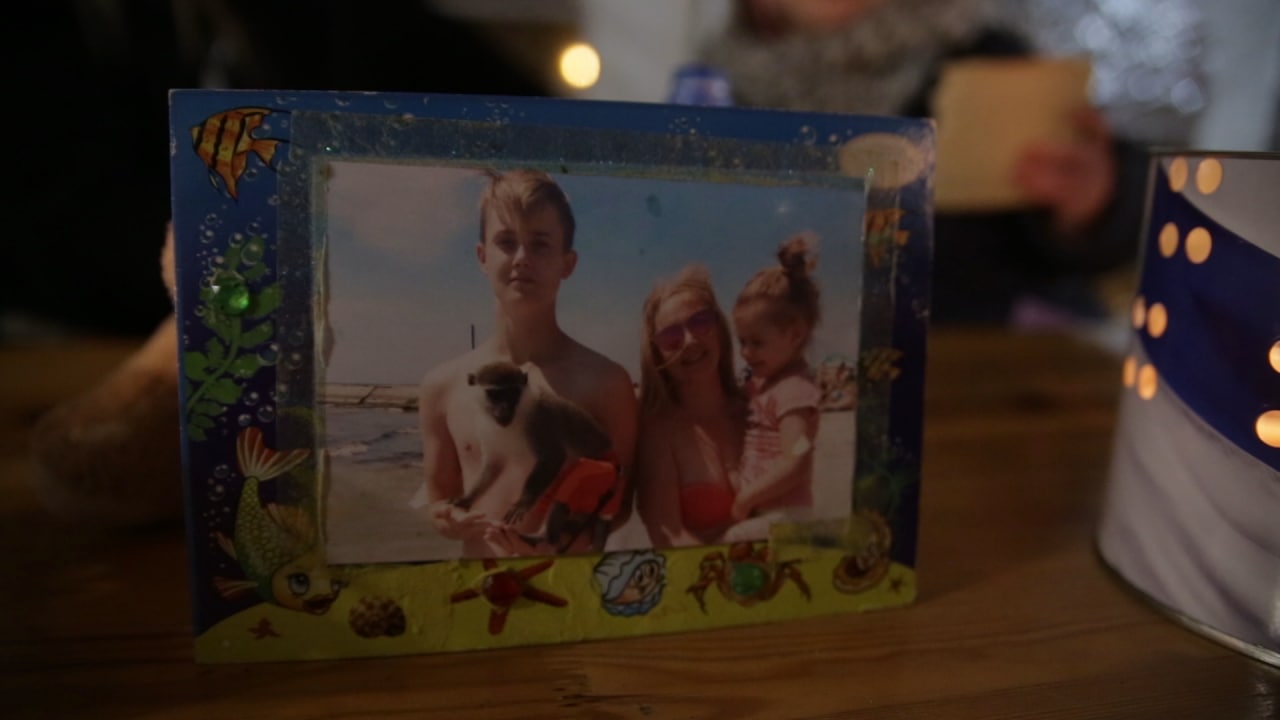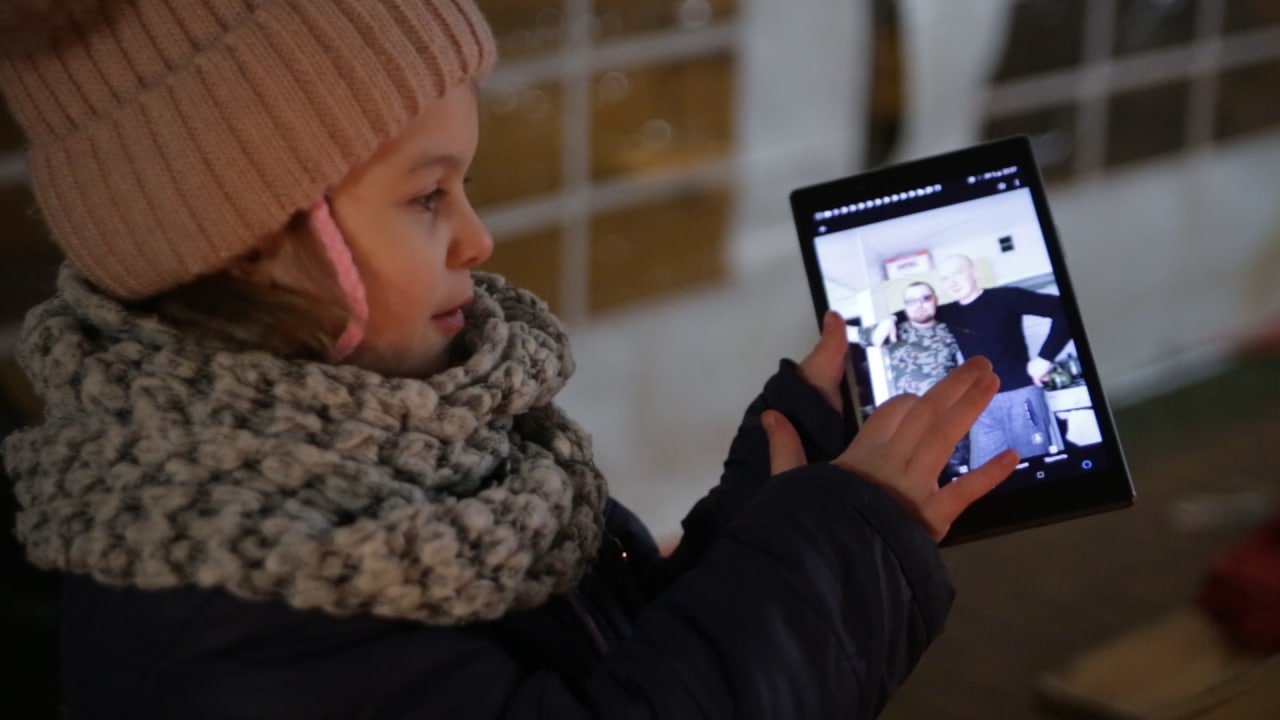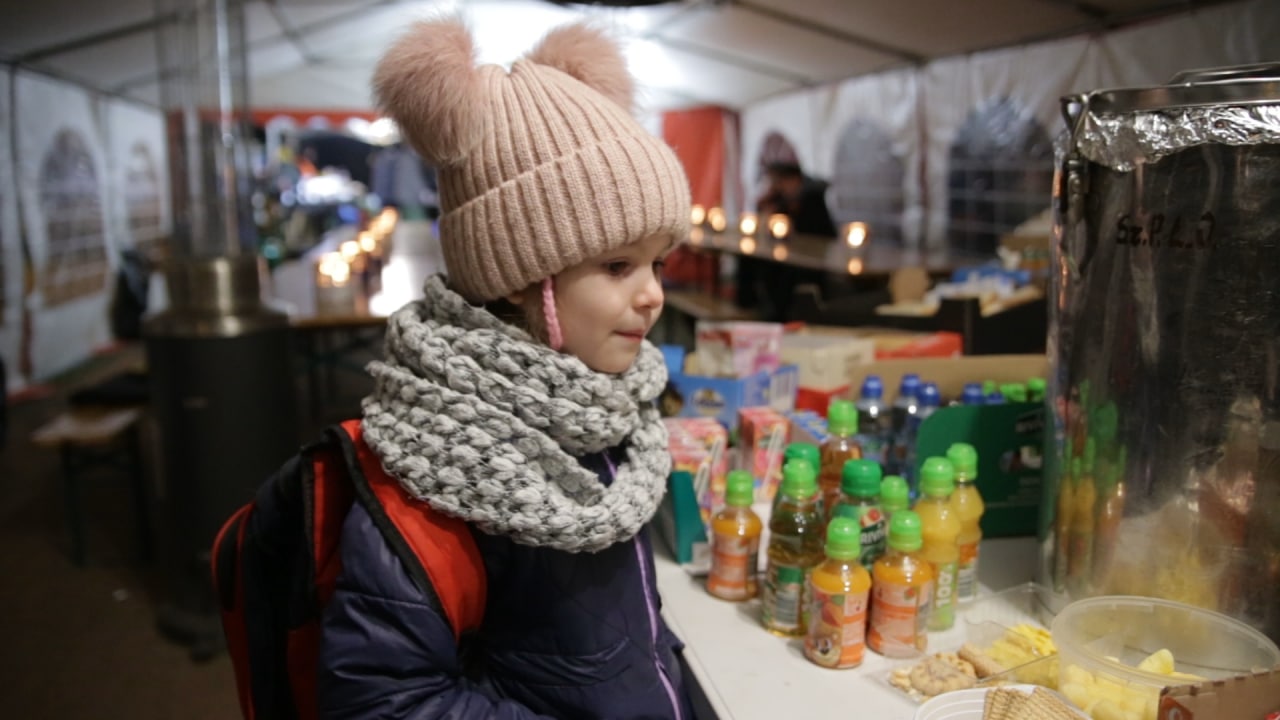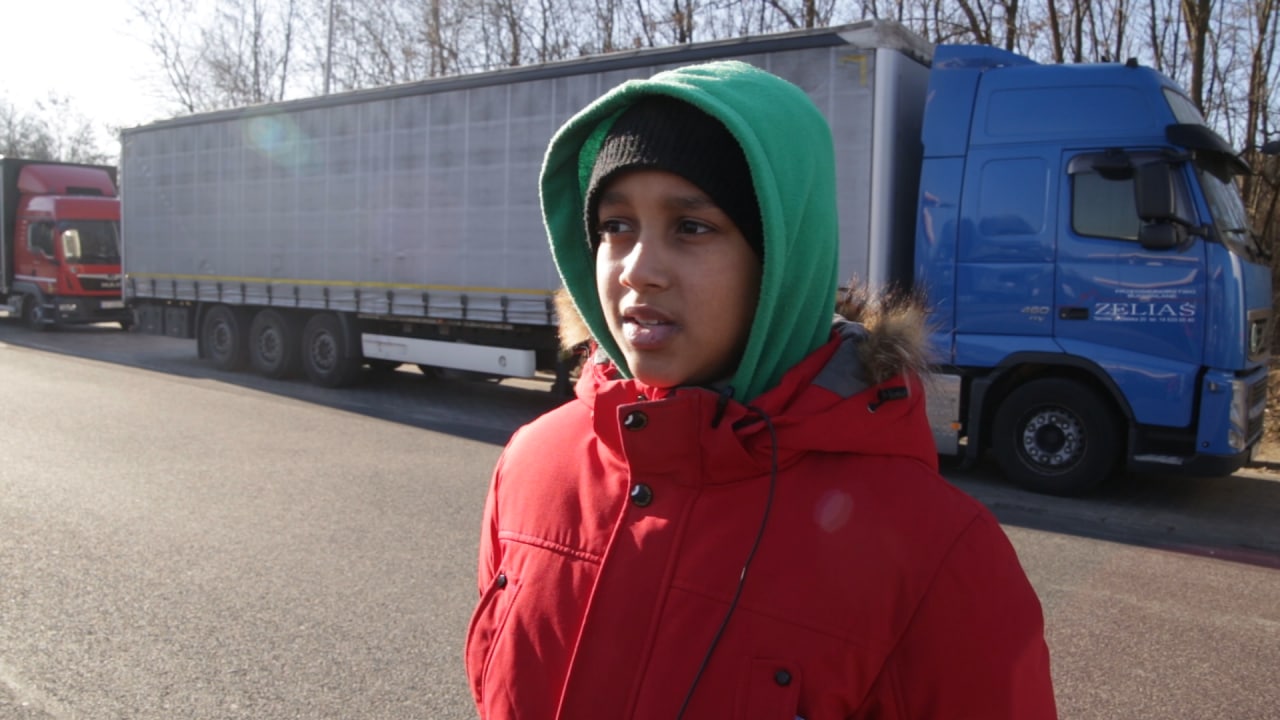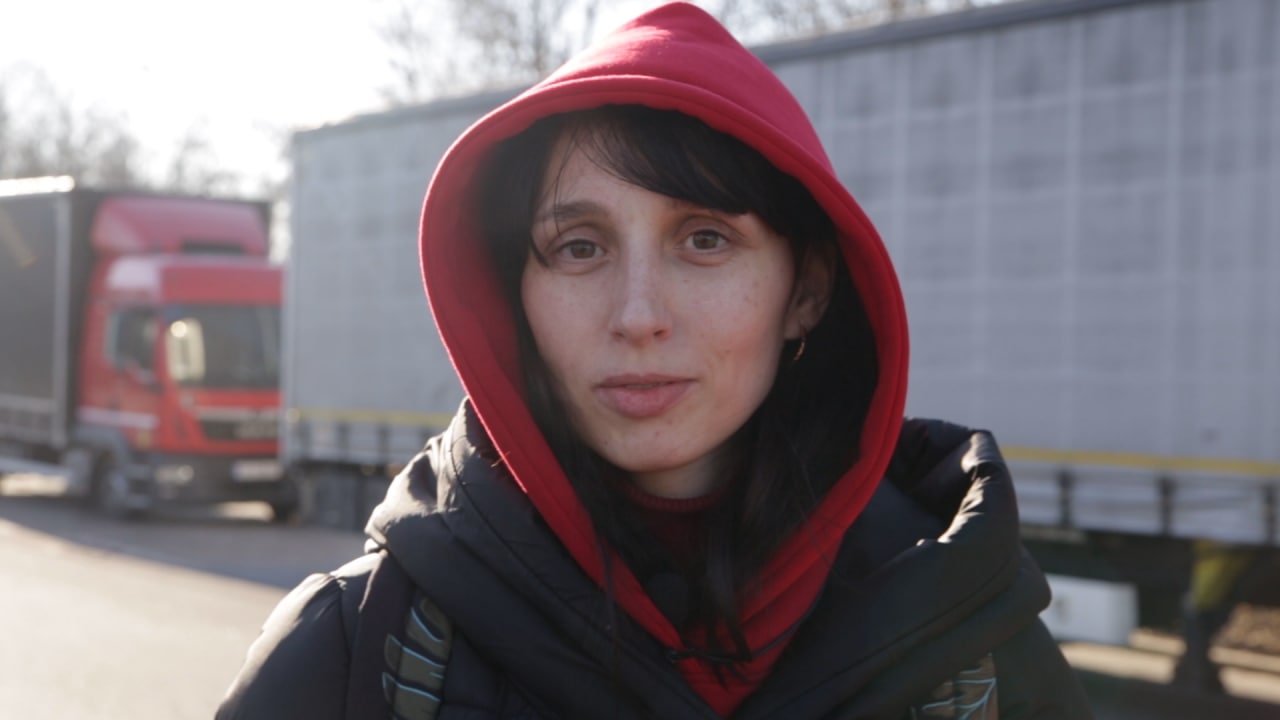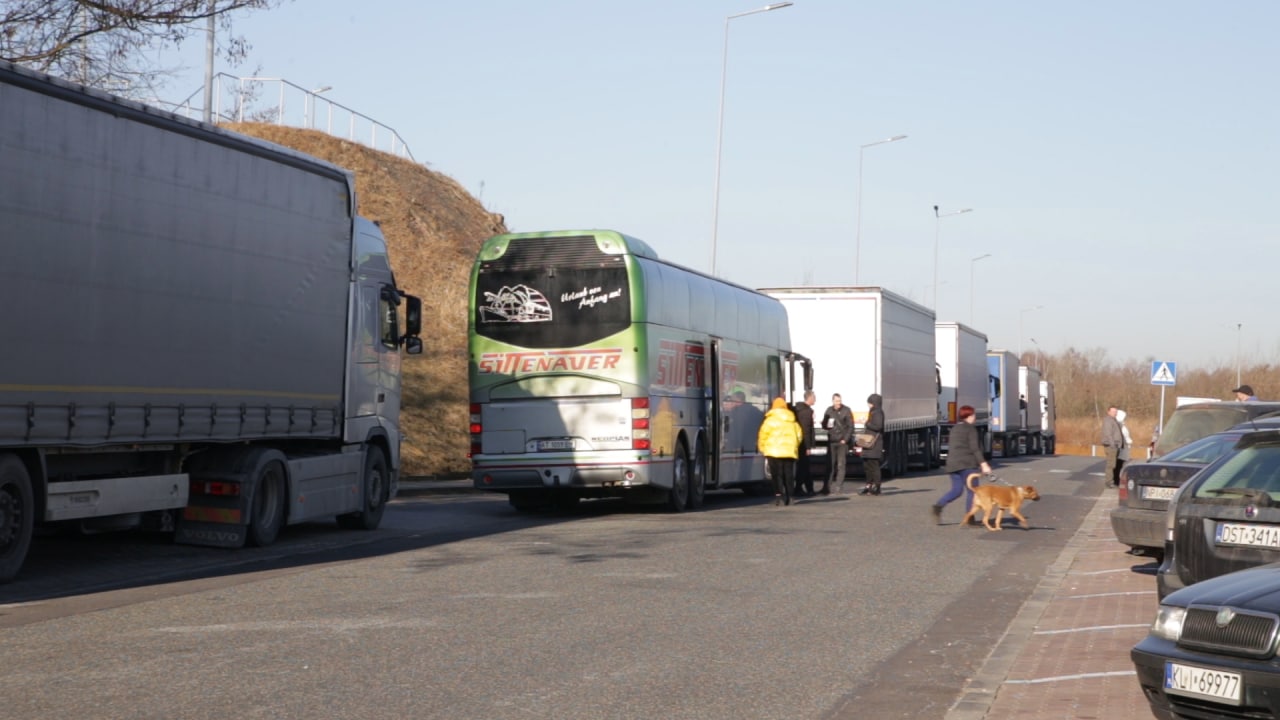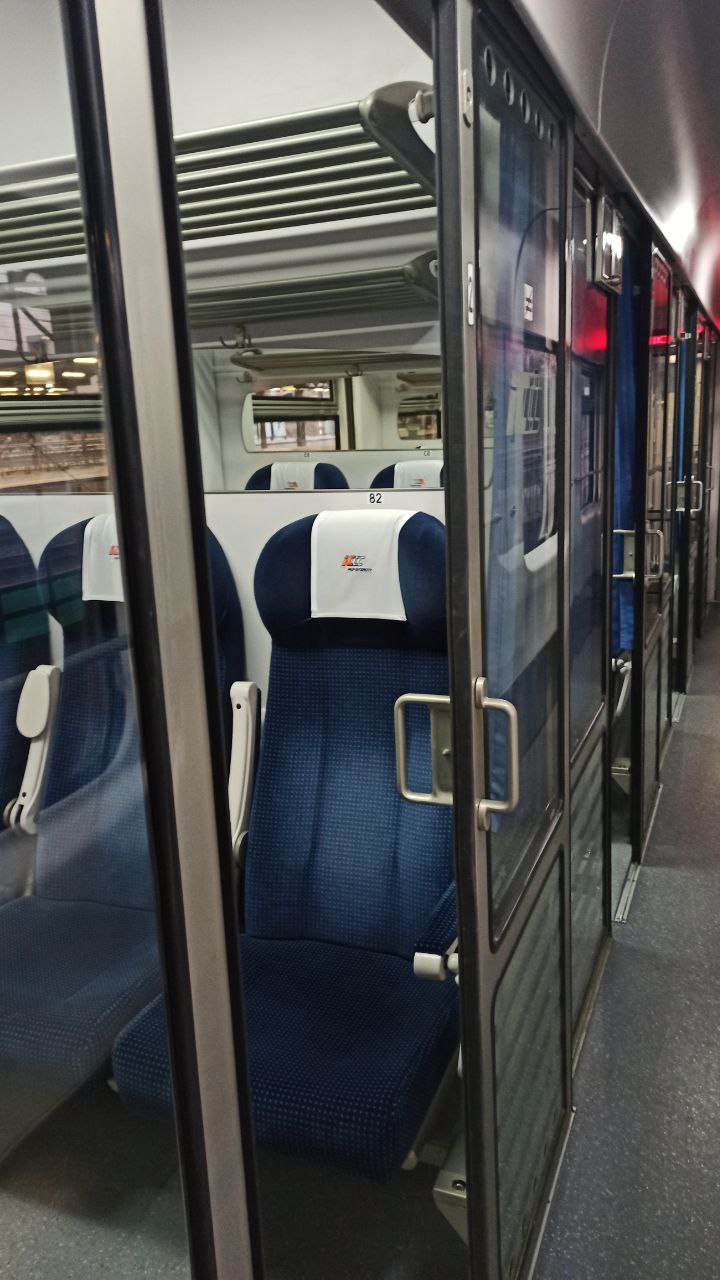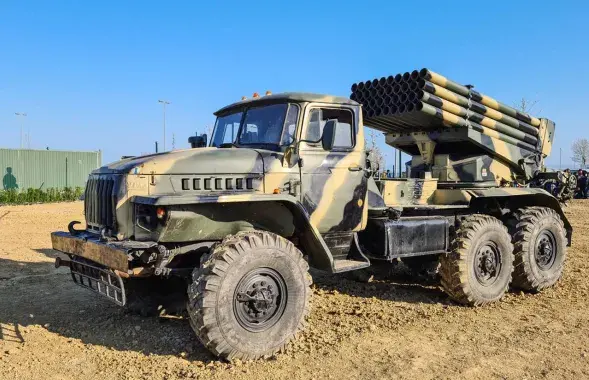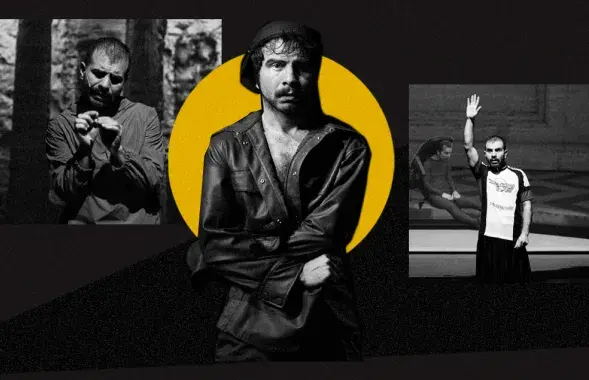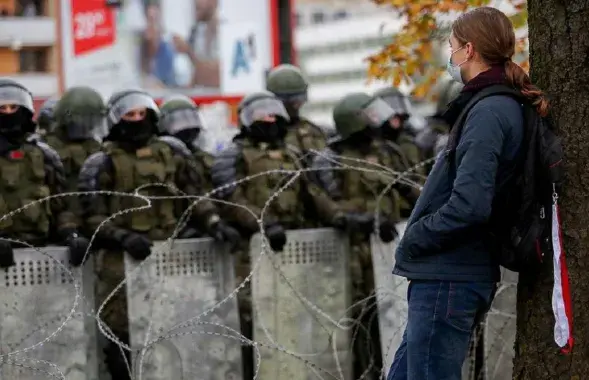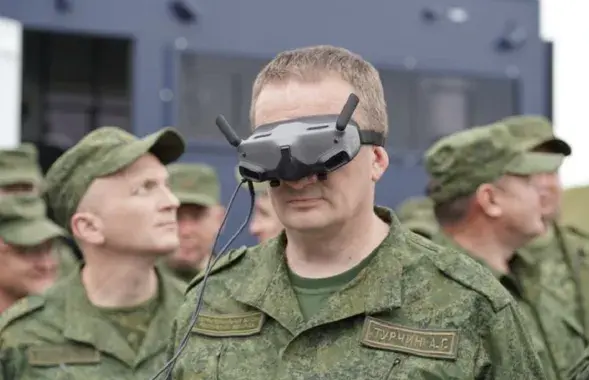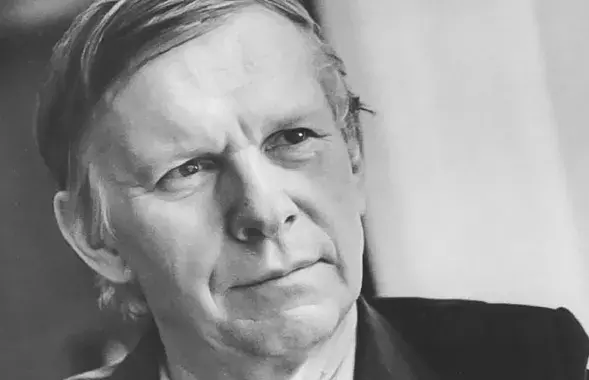Stories of Ukrainian women and children who escaped the war

"My kitty stayed at home because he's a boy" / Euroradio/Hromadske
Mattresses and cots are very close together, covered with colorful blankets and plaids. People climb under the blankets with their heads because the lights stay on even at night.
This is a gym in an elementary school in the Polish town of Lubycza Królewska, not far from the Ukrainian border. Google maps no longer show it as the school. It is now marked as a "Refugee Aid Station."
Almost all of the people who sleep under colored blankets on these mattresses and cots are women and children. Almost all of the men who are in that gym are volunteers. And the men of almost all the women who escaped the war stayed in Ukraine.
I lived through 2014 in Donbas. Things are much scarier now.
Lubycza Królewska, elementary school gym
We are in the border town of Lubycza Królewska. Yulia does not know where she is.
"I know I'm in Poland. And what town? I do not know".
Yulia and her son have just arrived from Kramatorsk. Volunteers put her and everyone else who has no one to meet them at the border crossing point in Hrebenne into cars and buses and take them to this school. Lubycza Królewska is 10 km from the border crossing point. The overnight stay at the local school is the first hope the refugees get.
Hope has the smell of food made on fire. Campfires burn around the school building all night, and all night volunteers are on duty at the school.
There are mattresses in one part of the gym and tables in the other. Here you can make tea or coffee and have a snack. A sign above the table reads "Dear Ukrainians, take as much as you want". A sign on the soccer goal says "Legal advice".
Those who can't sleep are drinking tea. A girl walks slowly along the boxes of humanitarian goods, looking for shampoo.
A young woman runs into the gym with a baby. Her child needs an urgent diaper change. An old man rolls a wheelchair into the gym; his wife is sitting in it. A teenage boy is hugging a cat carrier. An elderly woman takes her blood pressure.
"It is 162 over 100. And the pulse is 100".
There are several hundred people here. And it's very quiet.
Yulia is one of the few women who agrees to tell her story on camera. Her partner is still in Ukraine. She came to Poland with her 13-year-old son. She is confused and doesn't know what to do.
Volunteers promise to give Yulia instructions on how to proceed. In the meantime, we'll ask her to put on a microphone, step out on the porch, and answer questions. At least some clarity, at least some instructions.
"The day before we left, a fighter jet flew over us. I freaked out. My son and I decided to leave before it was too late, to save our lives".
Kramatorsk is a city in Donbas, between Donetsk and Luhansk. It is shelled every night.
"We lived through 2014. We knew what it was like. But it's so much bigger now. The weapons are totally different. We left in a hurry. We took a backpack full of baby stuff. And documents".
Yulia and her husband worked together at the factory. February 24th was their last working day.
"I lost my job. I lost my house. I don't know what will happen to it. It's got all the stuff we saved up for with our hard work".
"I hope for the best, I hope the child will like it in Poland. I hope to find a job here, I want to work. Where? What city will I go to? I don't know. I don't know".
Yulia briefly writes to her partner. He asks: "Is everything okay?" Yulia answers: "Everything is fine." Not because there is nothing more to say, but to save the phone battery. When Yulia and her son crossed the border, her partner wrote to say he was glad they left on time.
"That's my kitty, he stayed home because he's a boy, too"
Lubycza Królewska, elementary school porch
The scariest stories fit into four words:
"Sorry, I can't talk".
After a few hours in the gym, you learn to understand without asking questions. For example, if a person has a large suitcase with them, most likely they got a ride to the border from volunteers. If they have a small backpack, they had to go by train. In the train, there is no room for two: either you go or the suitcase.
If a man has three children, he can leave Ukraine. A family of six is sitting at the table -- a mother and five daughters. Their father could have left, but chose to stay in the country.
"Hello, do you speak Russian?"
"Yes".
The woman turns around, she thinks we want to offer her help. But we need to "just ask."
Olga came from Kryvyi Rih with her six-year-old daughter. Her son is 18 years old. He will be helping out in the military. Her husband is a reserve officer, he will defend Ukraine. Her six-year-old Arisha knows who Putin is and draws bombing scenes.
"It took them a long time to convince me to leave. And I immediately had tears in my eyes. I didn't want to. I said I wouldn't go without my son. But yesterday, literally in an hour, I packed and left. At night, yes. I pushed it to the last minute".
But it was getting dangerous to stay. At any moment, the same thing could happen to Kryvyi Rih as to Kharkiv and Kyiv. Although our men hold the defense, there is no hold against mines and missiles. Only the closed sky.
The suitcase took an hour to pack. When they opened it, it turned out that there were three bears in it.
"Arin, can you show me your backpack? What do you have in it?"
Arina takes out of the backpack toys and a picture of her standing next to her mother and brother. They have the sea behind them, and her brother Georgy has a monkey in his arms.
"It's me and Zhora at the sea. I also have my daddy on my tablet. That's my dad. I hugged him yesterday".
"I hugged him, cried and kissed him," says Olga.
"And this is my cat," shows another picture of Arina. - He also stayed in Kryvyi Rih. Because he's a boy too.
All the way from Kryvyi Rih to the border, Olga was afraid the car would be shot. Then she was afraid she would lose her child in line at the checkpoint, afraid there would be a stampede.
"But we got there all right. In Ukraine, everyone rallied together. People who have money organize transportation - volunteers took us to the border.
And we were very well received here. People are sympathetic and kind. I tell everyone I know: girls, take your children, go away. Because our husbands, when they go to the battlefield, worry about us. And then the war will be over, we will come back and rebuild Ukraine.
I left, I made a choice for my daughter. But many women stayed behind. Some had husbands, some had sons of conscription age. The girls just couldn't leave. They said they would not leave their men".
Arina reads a poem and shows us the candies the volunteers gave her. Olga hugs her daughter, listens to her, smiles at her. And then she turns to us and says:
"Girls, I want to go home so much".
But the buses and cars that leave Lubycza Królewska don't go home. They can only take Ukrainians away from home. Far away or very far away.
"It takes a high bottle and a rag"
The road to Wroclaw.
"My name is Kingsley, I'm 11 years old".
"Who taught you how to make a Molotov cocktail?"
"My mother did."
Before the war, Kingsley and his mother Yana lived near Kyiv. Now we go together to Wroclaw, Poland.
"It takes a simple high glass bottle. Then you take a rag -- Kingsley knows three recipes for Molotov cocktails. He shares with us the one he thinks is the best".
"For me, it's the most effective one".
Kingsley has a backpack with his medicine, documents and warm clothes.
"This is a special survival briefcase. It is important to take black chocolate with you because it calms you down".
All the way to Wroclaw, Yana monitors the news: she sends her family messages about the latest air-raid alert near Kyiv.
"Because you get used to it. The hum is constantly in your ears, and you no longer know when the siren is sounding and when it is buzzing in your ears. For them not to miss the message of the alarm, I forward them in telegram," says Yana.
A volunteer drove us to Wroclaw. He brought humanitarian supplies to the refugee relief center. He drank a lot of coffee and slept very little. He wouldn't take a zloty for this trip.
"The first two days were the worst. It was when we realized the war had begun. We didn't believe it until the last," says Yana. "For the next ten days, we were constantly running to the basement to hide. It is frightening to sit there and not know what can happen next. You worry about your loved ones. You hear the sound of rockets, explosions nearby".
All my family and friends were there. It was mentally difficult to prepare for my departure. I had been preparing myself for three days. I understand that it is a traumatic situation for a child, and we have to be resourceful to support our loved ones who stayed there.
All of Yana's loved ones remain near Kyiv: her parents, sister, and brother. On the day of her departure, her sister got married.
"The men are ready to take up arms and go to defend our land. Even if they could leave, they would not. They would flatly refuse. Absolutely not. I don't know a single man who wants to leave Ukraine. I only know of those who returned to defend their land".
Yana and her son got help with evacuation by the center at the church. Women with children and people with disabilities were the first to be evacuated.
"Will someone meet you in Wroclaw?"
"Yes. But there is no clear plan. There are a lot of Ukrainians there now. Probably, we won't stay there, we'll go further to Germany".
"And when the war is over, where will you go?" we ask Kingsley.
"When the war is over, I want to continue my studies. I want to become a programmer. And then live my beautiful life," says Kingsley.
"Half the village left, only the men remained"
Train Wroclaw - Warsaw
The train from Wroclaw to Warsaw leaves from platform 4. Two boys, about fifteen years old, run into the compartment.
"Are you from Ukraine?"
"From Belarus".
"Do you speak Ukrainian? No? My friend and I are from near Mykolaiv. Now we are going to Warsaw, and from there to Lithuania. While we have a chance, we should go. Otherwise, we won't be able to leave. Do you understand Polish?"
"So-so, and you?"
"So do we. I'm 14, but I'll probably never go to school. I'd like to make some money. I don't know the language. I'm going to work. When the war is over, I'll have earned money by then. I still have my bike at home. Spark."
"It's a nice train, and there are outlets. On the way here, there was one power bank for everyone. Would you like some tangerines? Shall I show you how our village was bombed?"
They're showing.
"Was it scary?"
"No, they only shoot at big buildings. A shell hit my school, yes. But otherwise, it was calm".
"Do you have many relatives left in Ukraine?"
"Half of the village left. Only the men remained. They can't leave. My uncle took us to the border, turned around and went back. Daddy stayed at home."
